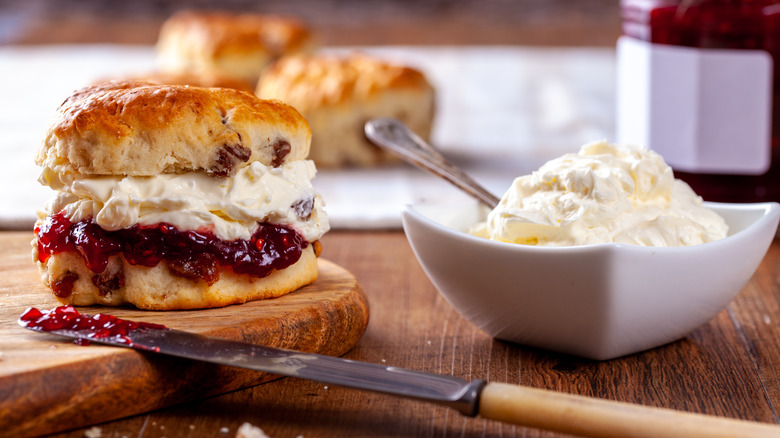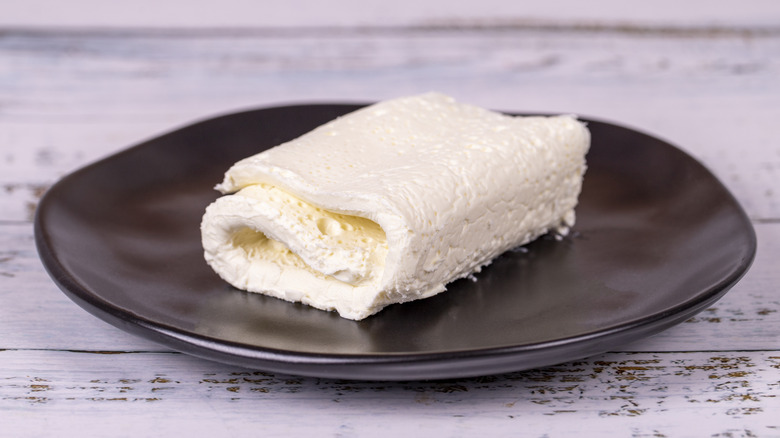Is Real Clotted Cream Illegal In The US?
Find yourself at a traditional afternoon tea in England, and you'll have trays full of scones, bite-sized sandwiches, and small cakes served with jams and clotted cream. The clotted cream might be the one component that sounds unfamiliar to many in the United States because it's not easy to find an authentic version of the British condiment here. The thick white topping is mildly sweet and is made from milk that's been heated for several hours and then cooled until it thickens. Across the pond, unpasteurized milk is traditionally used, which is the reason why it's hard to find in the U.S.
As far as the legalities of buying real clotted cream in the U.S. go, it depends on what state you live in. Following a 1987 ruling from the Food and Drug Administration, the interstate sale of raw milk was banned in the U.S. According to the Centers for Disease Control and Prevention, raw milk can contain harmful bacteria and germs, which can be especially risky for certain individuals like those who are pregnant or elderly. However, because some claim the pasteurization process eliminates nutrients, others have taken a pro-raw milk stance.
The sale of raw milk in the US
Despite health risks, raw milk is becoming increasingly popular and has been legalized in several states. Iowa is one of the most recent states to legalize the sale of unpasteurized milk from small producers, having done so in July 2023. In California, Pennsylvania, Washington, and other states, unpasteurized milk is legal to sell at retail stores, but regulations vary by state. For example, California allows for the sale of raw butter and cream so you might find authentic clotted cream to try with our classic English scone recipe. In states like New York, Texas, and others, you can only buy raw milk directly from farms.
That doesn't mean that you're totally out of luck when it comes to clotted cream here in the U.S. It might not be authentic, but versions of the cream are for sale on Amazon and at stores like Whole Foods. The difference is that these products are made with pasteurized milk, including the varieties that are made in England and sold here.
You can also make homemade clotted cream to use on your pastries. One technique is to pour cream into a baking dish, place it in the oven at a low temperature for up to 12 hours, chill, then separate the cream from the liquid. You can serve the clotted cream on fresh berries, muffins, scones, or other pastries.

